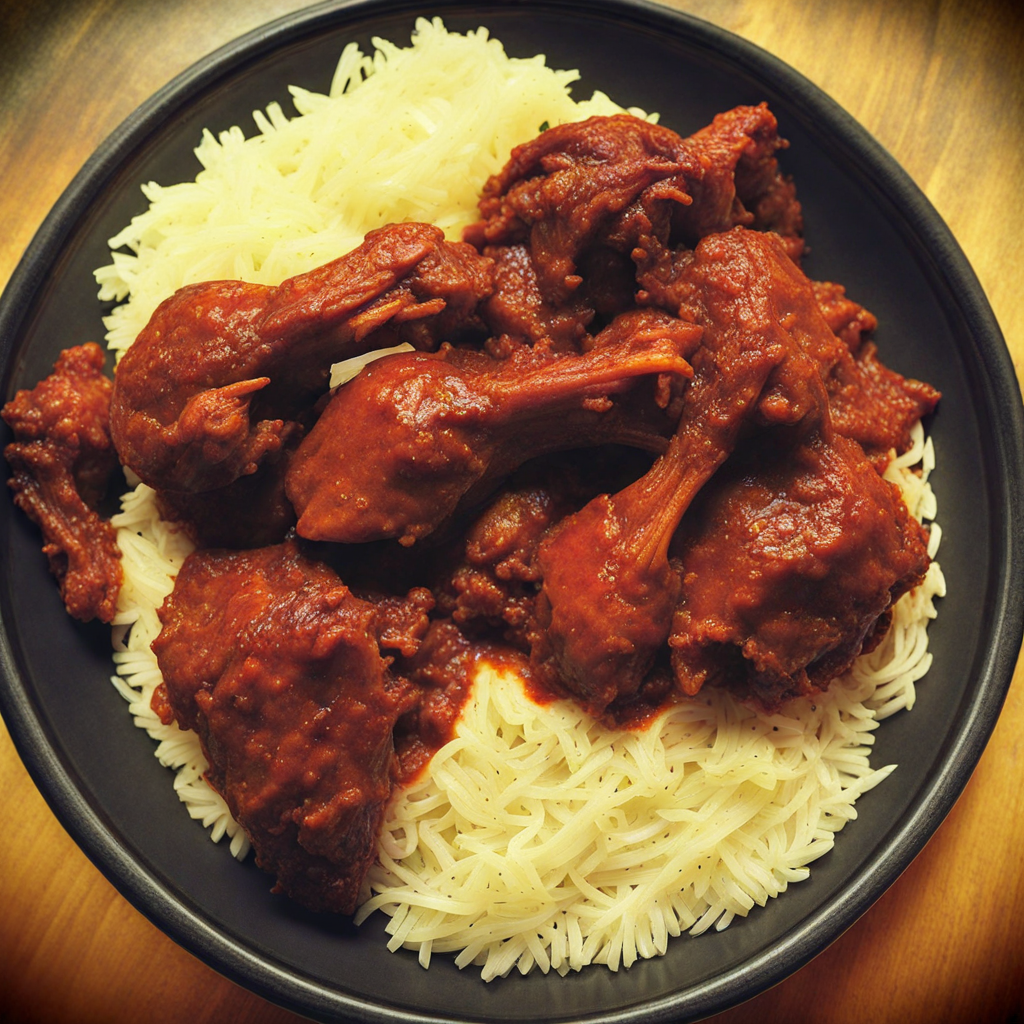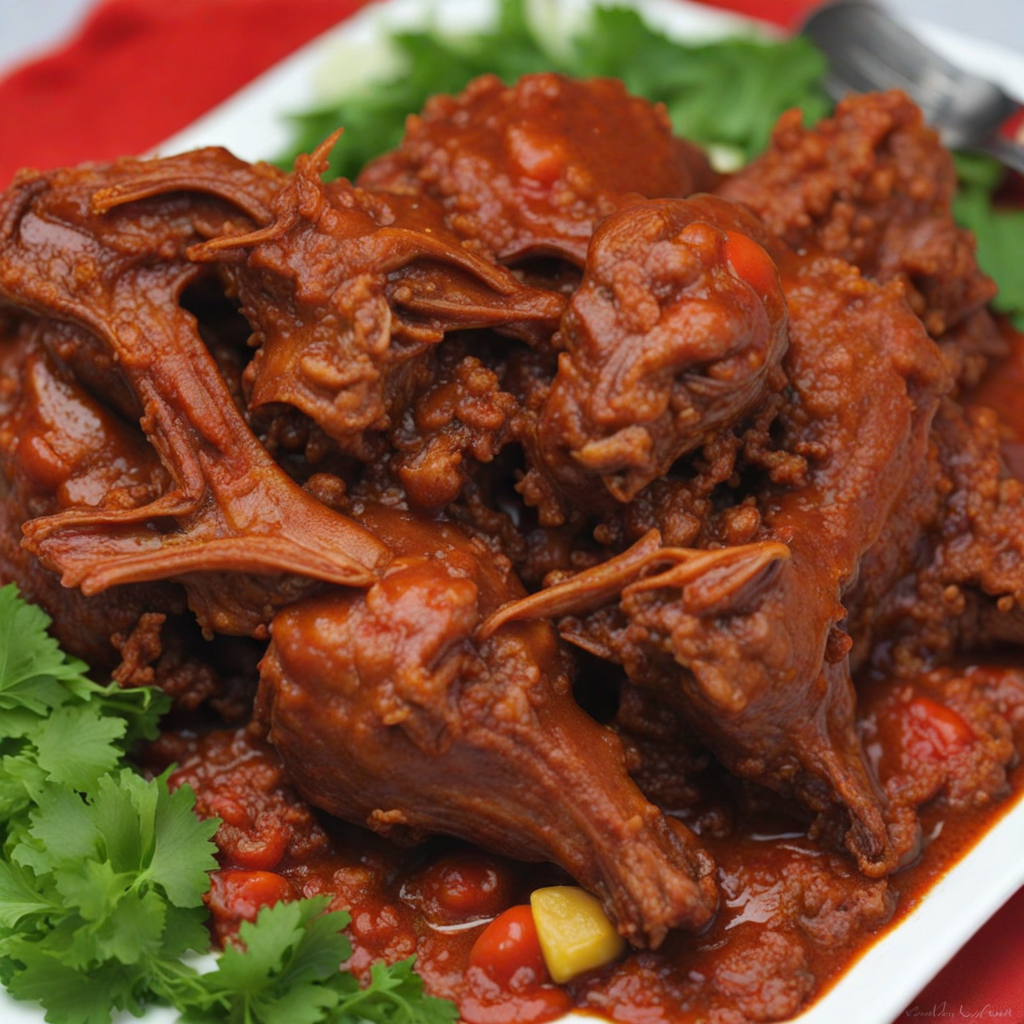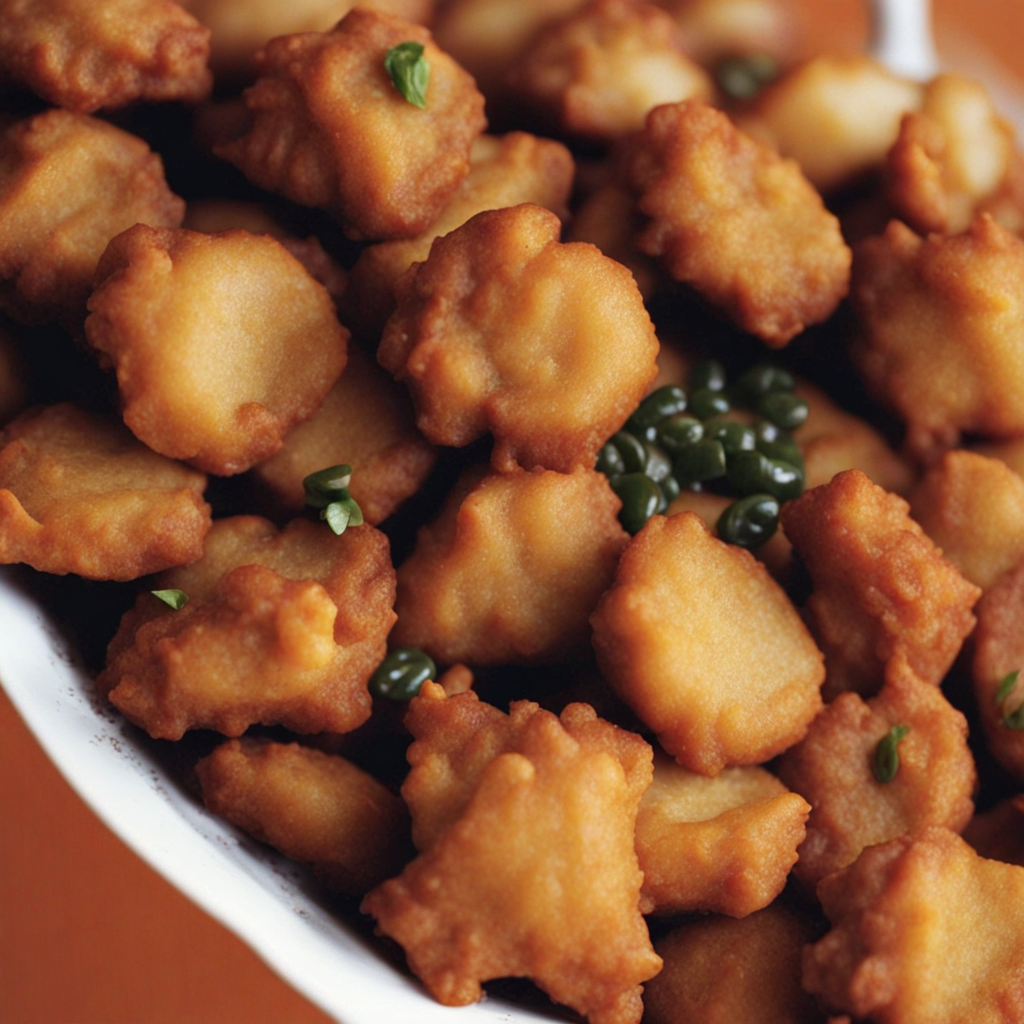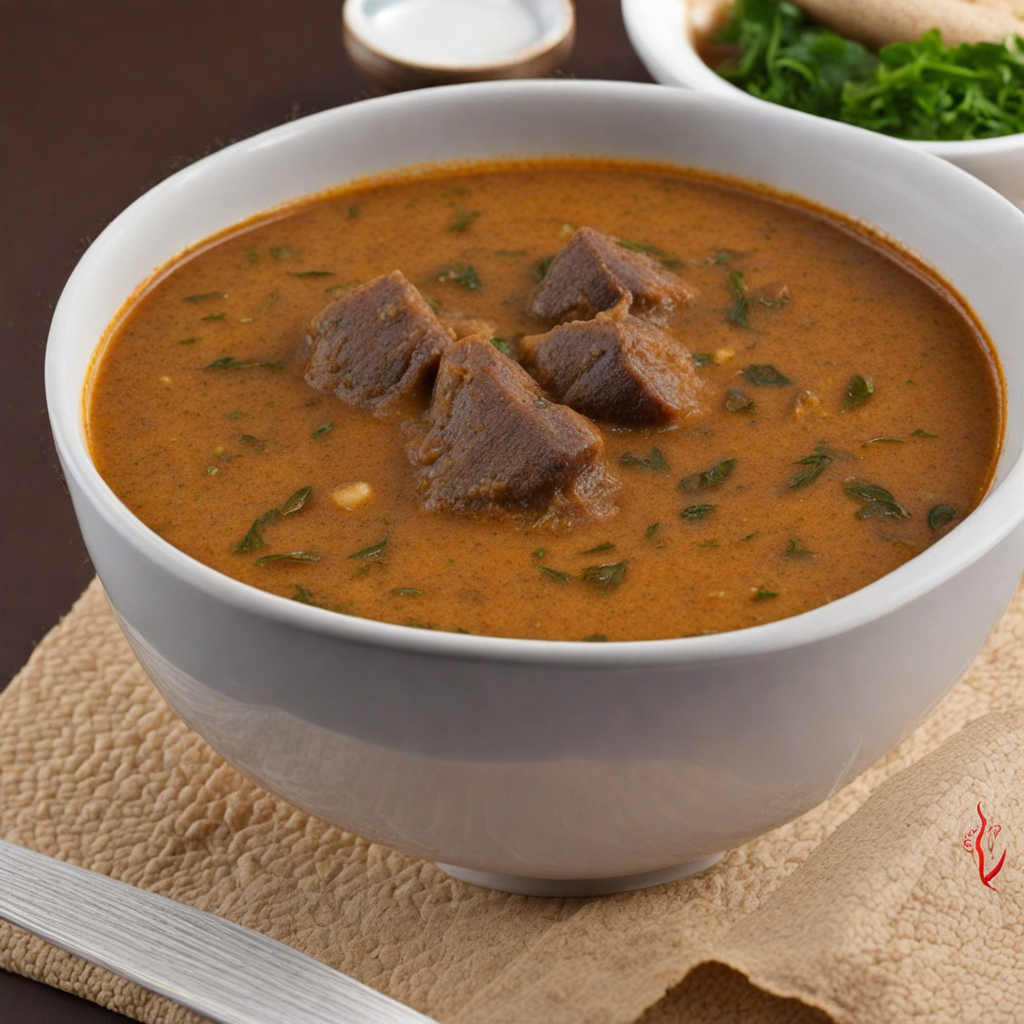Isiewu
Isiewu, a traditional delicacy from the southeastern region of Nigeria, is a goat head dish that has gained popularity for its rich flavors and cultural significance. This dish is particularly common among the Igbo people, often served during special occasions such as celebrations, family gatherings, and communal events. The preparation of Isiewu not only showcases culinary skills but also underscores the importance of communal eating in Nigerian culture, where sharing food is a symbol of unity and friendship. The history of Isiewu can be traced back to the rural traditions of the Igbo people, where goat farming was prevalent. The dish is often associated with the idea of resourcefulness, as it utilizes parts of the goat that might otherwise be overlooked. Over time, Isiewu has evolved from a simple local dish to a celebrated culinary experience that has transcended regional boundaries, finding its way into urban restaurants and food festivals. It is commonly enjoyed with palm wine or beer, enhancing the communal dining experience. The flavors of Isiewu are bold and complex, characterized by a blend of spices that reflect the rich culinary heritage of the Igbo people. The dish is known for its spicy kick, primarily due to the use of ingredients such as pepper, ginger, and local spices that create a symphony of flavors. The goat head, being rich in gelatin and connective tissue, provides a unique texture that complements the robust seasoning. When cooked properly, the meat becomes tender and easily separates from the bones, allowing the spices to infuse
How It Became This Dish
The Rich Tapestry of Isiewu: A Nigerian Culinary Delight Isiewu, a traditional dish from Nigeria, is not just a meal; it is a celebration of culture, heritage, and communal ties, particularly among the Igbo people of southeastern Nigeria. This delicacy, which translates to "goat head" in the Igbo language, is a dish that embodies the spirit of togetherness and festivity. Its history is deeply interwoven with the customs and traditions of the Igbo people, making it a significant part of their culinary landscape. #### Origins of Isiewu The origins of Isiewu can be traced back to the rural communities of the Igbo ethnic group, where goat farming has been a staple of their agricultural practices for centuries. Goats are relatively easy to rear and adaptable to diverse environmental conditions, making them a common livestock choice in the region. The consumption of goat meat, including the head, is rooted in both practicality and cultural significance. The head, being a less commonly consumed part of the goat, symbolizes resourcefulness and respect for the animal, as every part is utilized and appreciated. Isiewu was traditionally prepared for special occasions, family gatherings, and celebrations. It was a dish reserved for significant events such as weddings, festivals, and communal feasts. The preparation and sharing of Isiewu fostered a sense of community, as families and friends would come together to enjoy the meal, reinforcing social bonds and cultural identity. #### Cultural Significance Isiewu is more than just food; it is a cultural emblem that reflects the values and traditions of the Igbo people. The dish is often associated with hospitality, as offering Isiewu to guests is a sign of respect and generosity. In many Igbo households, the preparation of Isiewu is an elaborate process that involves careful seasoning and cooking techniques passed down through generations. The dish is typically prepared by boiling the goat head until tender, then marinating it in a rich blend of spices, including ground crayfish, pepper, onions, and local herbs. The use of palm oil adds a distinct flavor and richness that enhances the overall experience. The head is often served with the brain, which is considered a delicacy, and accompanied by side dishes such as yam or plantains, making it a hearty and satisfying meal. Isiewu is also deeply tied to traditional rites and ceremonies. During festivals, it is common for families to prepare Isiewu to honor their ancestors and celebrate their heritage. The dish is often featured in traditional dances and gatherings, further solidifying its role as a cultural marker within the Igbo community. #### Development Over Time As Nigeria underwent significant social and economic changes throughout the 20th and 21st centuries, so too did the preparation and consumption of Isiewu. The influence of urbanization, globalization, and migration has impacted how traditional foods are perceived and prepared. In urban areas, Isiewu has gained popularity beyond the Igbo community, becoming a sought-after dish in restaurants and food markets across Nigeria. With the rise of food tourism and the increasing interest in Nigerian cuisine worldwide, Isiewu has found its place on the global culinary stage. Chefs and food enthusiasts have embraced the dish, experimenting with modern interpretations while maintaining its traditional essence. This fusion of flavors has led to a renaissance of Isiewu, making it accessible to a broader audience. In contemporary times, Isiewu is often featured in food festivals and cultural events, where it is celebrated as a symbol of Nigerian identity. Food bloggers and social media influencers have also played a crucial role in popularizing the dish, showcasing its preparation and cultural significance through vibrant visuals and storytelling. This digital engagement has contributed to the revival of interest in traditional Nigerian dishes, including Isiewu. #### Challenges and Preservation Despite its popularity, the traditional preparation of Isiewu faces challenges. The modernization of agriculture and livestock farming has led to changes in how goats are raised and processed. Issues such as overgrazing, land disputes, and the rise of commercial meat production have impacted the quality and availability of locally sourced goat meat. The increasing reliance on imported meat products poses a threat to the authenticity of Isiewu and other traditional dishes. To counter these challenges, efforts are being made to preserve the cultural significance of Isiewu. Local farmers and communities are working to promote sustainable farming practices and support local markets, ensuring that traditional ingredients remain accessible. Culinary schools and cultural organizations are also emphasizing the importance of traditional cooking methods, encouraging younger generations to embrace and celebrate their culinary heritage. #### Conclusion Isiewu is more than just a dish; it is a rich representation of the Igbo culture and an emblem of communal ties. Its history reflects the resilience and adaptability of the Igbo people, embodying their values of hospitality, respect, and resourcefulness. As Isiewu continues to evolve in a modern context, it remains a beloved traditional dish that connects individuals to their roots and fosters a sense of belonging. In a world increasingly influenced by globalization, the preservation of Isiewu and similar traditional foods is crucial. The culinary heritage of the Igbo people is a treasure that deserves recognition and celebration, not only for its flavors but for the stories it tells and the connections it fosters. As we continue to explore the diverse tapestry of Nigerian cuisine, Isiewu stands out as a delicious reminder of the past and a hopeful symbol for the future.
You may like
Discover local flavors from Nigeria







